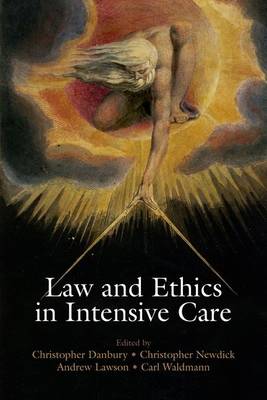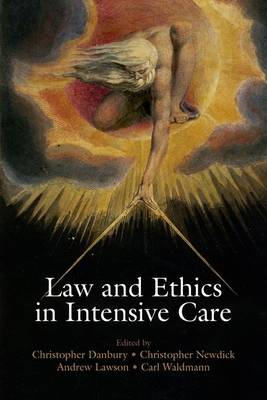
- Afhalen na 1 uur in een winkel met voorraad
- Gratis thuislevering in België vanaf € 30
- Ruim aanbod met 7 miljoen producten
- Afhalen na 1 uur in een winkel met voorraad
- Gratis thuislevering in België vanaf € 30
- Ruim aanbod met 7 miljoen producten
Zoeken
Law and Ethics in Intensive Care
Chris Danbury, Chris Newdick, Carl Waldmann, Andrew Lawson
Paperback | Engels
€ 90,95
+ 181 punten
Omschrijving
Critical care is a highly complex area of medicine, in which 30% of patients are expected to die. Developments in law have had a major impact on treatment expected and received in the ICU. However, the law and ethics surrounding clinical practice are not always clear, and generate much concern for those working in intensive care. This book outlines how the law has changed and the impact this has had on the practice of intensive care medicine. Particular clinical scenarios are outlined to illustrate real problems that develop during normal clinical practice, with discussion of the legal and ethical framework that arises from these scenarios, and possible solutions to the problems that are identified. It also covers issues such as consent, who decides children's rights, living wills, withholding and withdrawing of life-saving care, whether there is a right to insist on treatment, definitions of 'death', ICU funding, and the breaking of bad news. The emphasis is on practical information that will inform all professionals involved with patients admitted to the ICU, including doctors, nurses and allied health professionals.
Specificaties
Betrokkenen
- Auteur(s):
- Uitgeverij:
Inhoud
- Aantal bladzijden:
- 257
- Taal:
- Engels
Eigenschappen
- Productcode (EAN):
- 9780199562039
- Verschijningsdatum:
- 13/08/2010
- Uitvoering:
- Paperback
- Formaat:
- Trade paperback (VS)
- Afmetingen:
- 155 mm x 231 mm
- Gewicht:
- 430 g

Alleen bij Standaard Boekhandel
+ 181 punten op je klantenkaart van Standaard Boekhandel
Beoordelingen
We publiceren alleen reviews die voldoen aan de voorwaarden voor reviews. Bekijk onze voorwaarden voor reviews.











